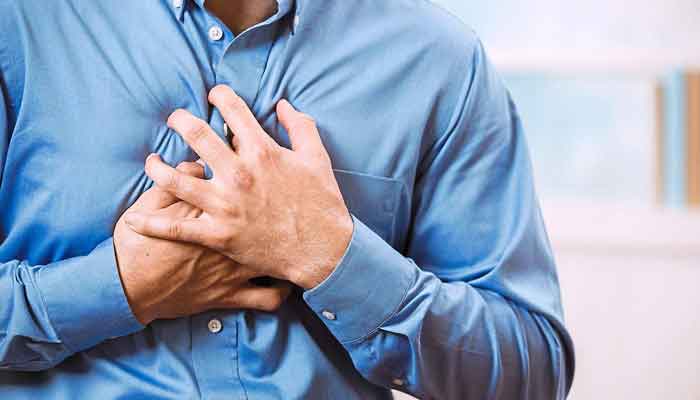Here are some signs that may indicate heart attack
Overall chances of survival from a heart attack are seven in 10 but chances increase for those who reach hospital early
April 09, 2023

Cardiovascular diseases (CVD) are the leading cause of death globally. However, the overall chances of survival from a heart attack are seven in 10 but the chances increase for those who reach the hospital early, The Sun reported.
According to research by National Health Service (NHS), about 70% of people had an idea that chest pain is a symptom of a heart attack while only 41% had knowledge that sweating is a symptom too.
Here are some of the early signs of a heart attack that everyone should know about.
Uncomfortable pressure
When a person feels weird in the chest, this could mean that he is having a heart attack. This feeling may last more than a few minutes.
One of the very first symptoms of a heart attack is "uncomfortable pressure, squeezing, fullness, or pain in the centre of your chest," said the American Heart Association.
Pain in other areas of the body
One can feel pain in other parts of the body as a result of a heart attack including the back, shoulders, arms, neck or jaw.
According to Cleveland Clinic, if a person has a blocked artery, it can trigger the nerves in the heart that something is wrong and that person would feel pain.
Dizziness
If you feel dizzy with chest pain and shortness of breath, this may indicate a drop in blood pressure, warning of a heart attack.
Fatigue
According to Harvard Health Publishing, women may feel fatigued a month out before having a heart attack.
Nausea
As per Stoney Brook Medicine, when the heart and other areas of the body don't receive enough blood supply then gastric symptoms like queasy stomach, vomiting, or burping can develop.
Heart palpitations
When the heart lacks adequate blood supply then it might start to get irritable, leading to palpitations.
Sweating
If you sweat more than usual without exercising or being active, this could indicate that you have heart issues.
This happens because pumping blood through clogged arteries puts more burden on the heart.
There are other symptoms which include shortness of breath, an overwhelming sense of anxiety (similar to having a panic attack) and coughing or wheezing.











